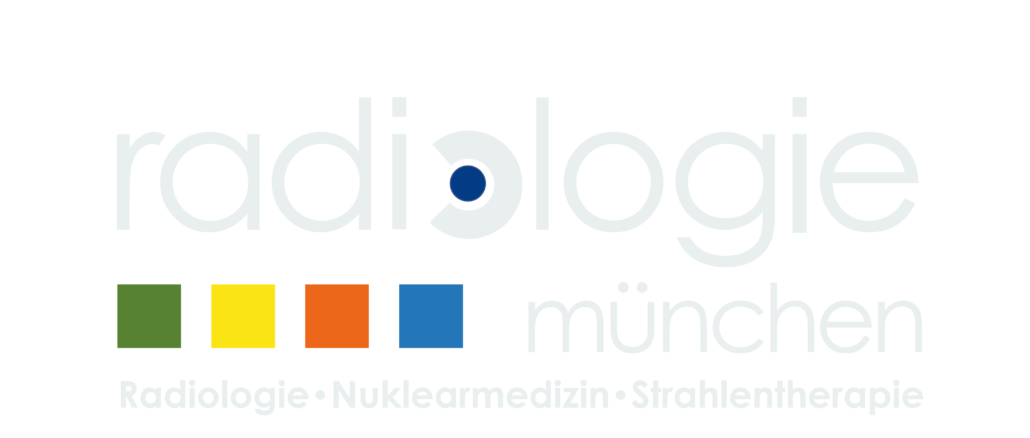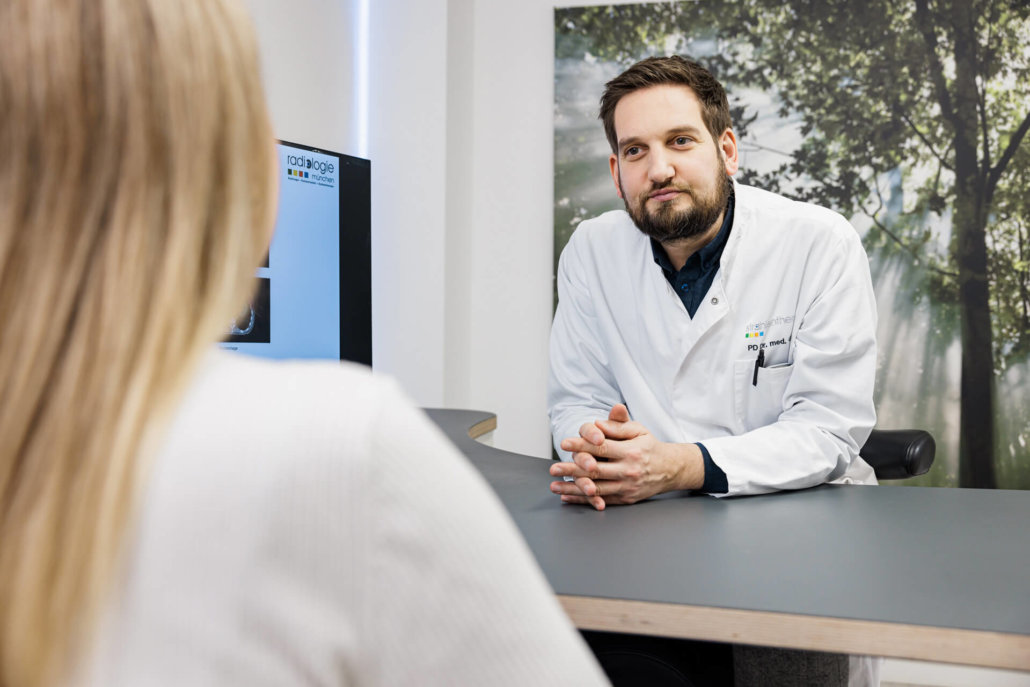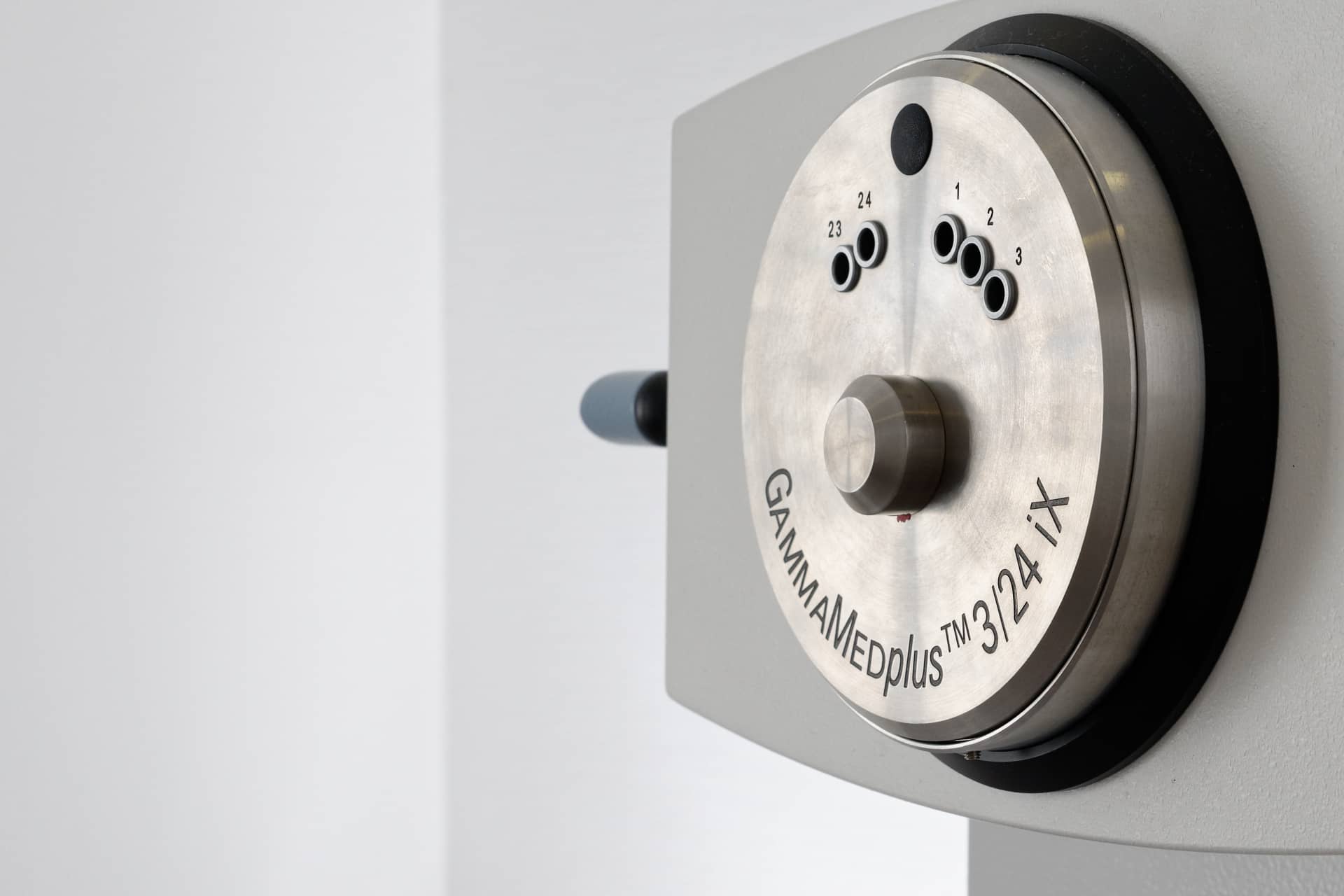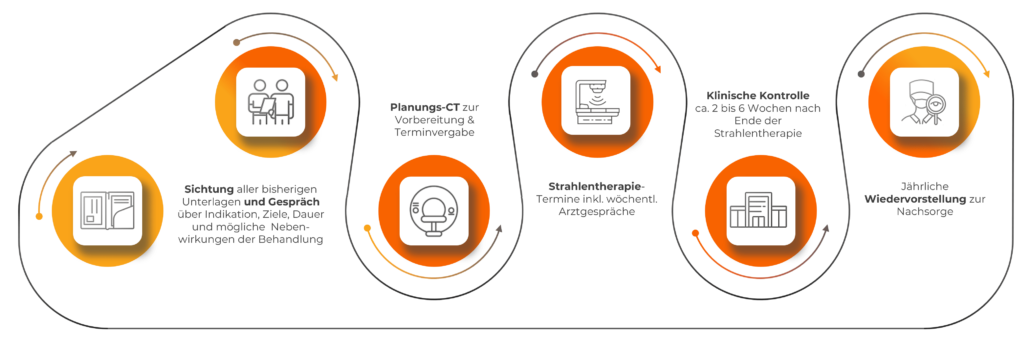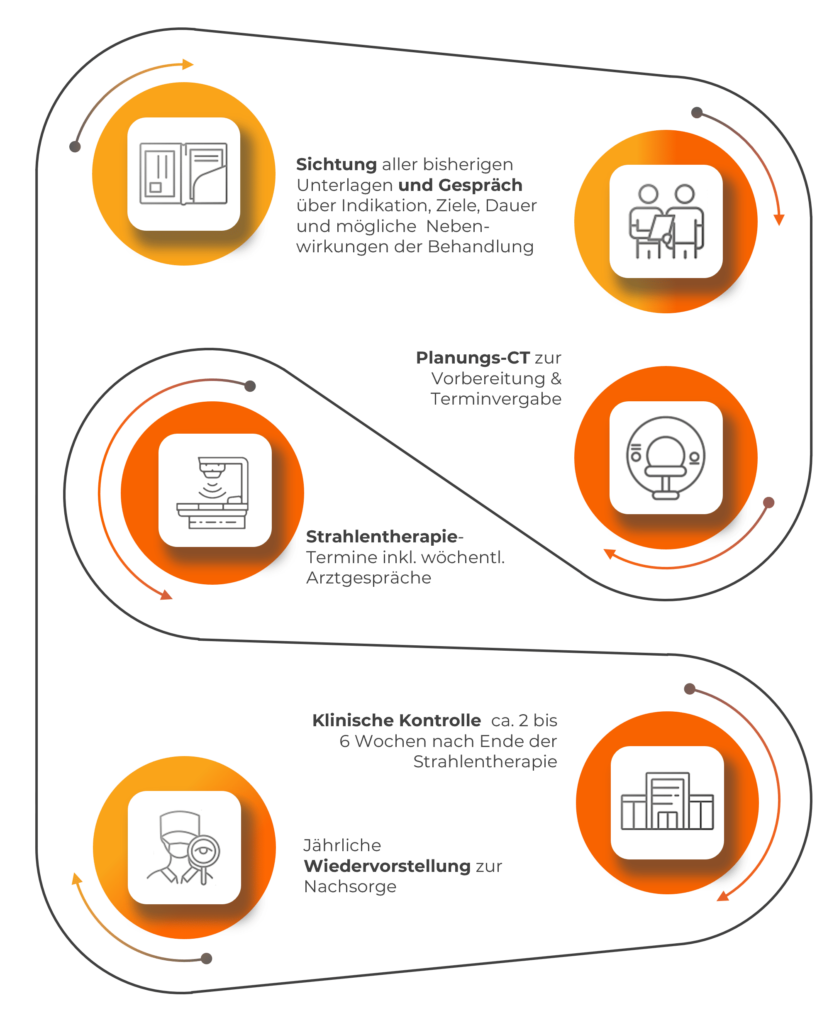Cancer of the esophagus
Esophageal cancer is about 4 times more common in men than in women. About every 50th male cancer patient currently develops oesophageal carcinoma (surveys by the Robert Koch Institute). Treatment by chemotherapy or surgery is often combined with adjuvant radiation therapy.
3,4 % / 1,3 %
of cancer deaths in men and women, respectively.
approx. 23 %
relative survival rate after five years
approx. 43 %
of all esophageal cancers are squamous cell carcinomas
Source: “Cancer in Germany”, RKI/Krebsdaten.de
Where can you have esophageal cancer treated in Munich?
We now offer the option of starting radiation therapy for esophageal cancer or metastases in the esophagus at three different locations. Select a practice and contact our specialists directly.
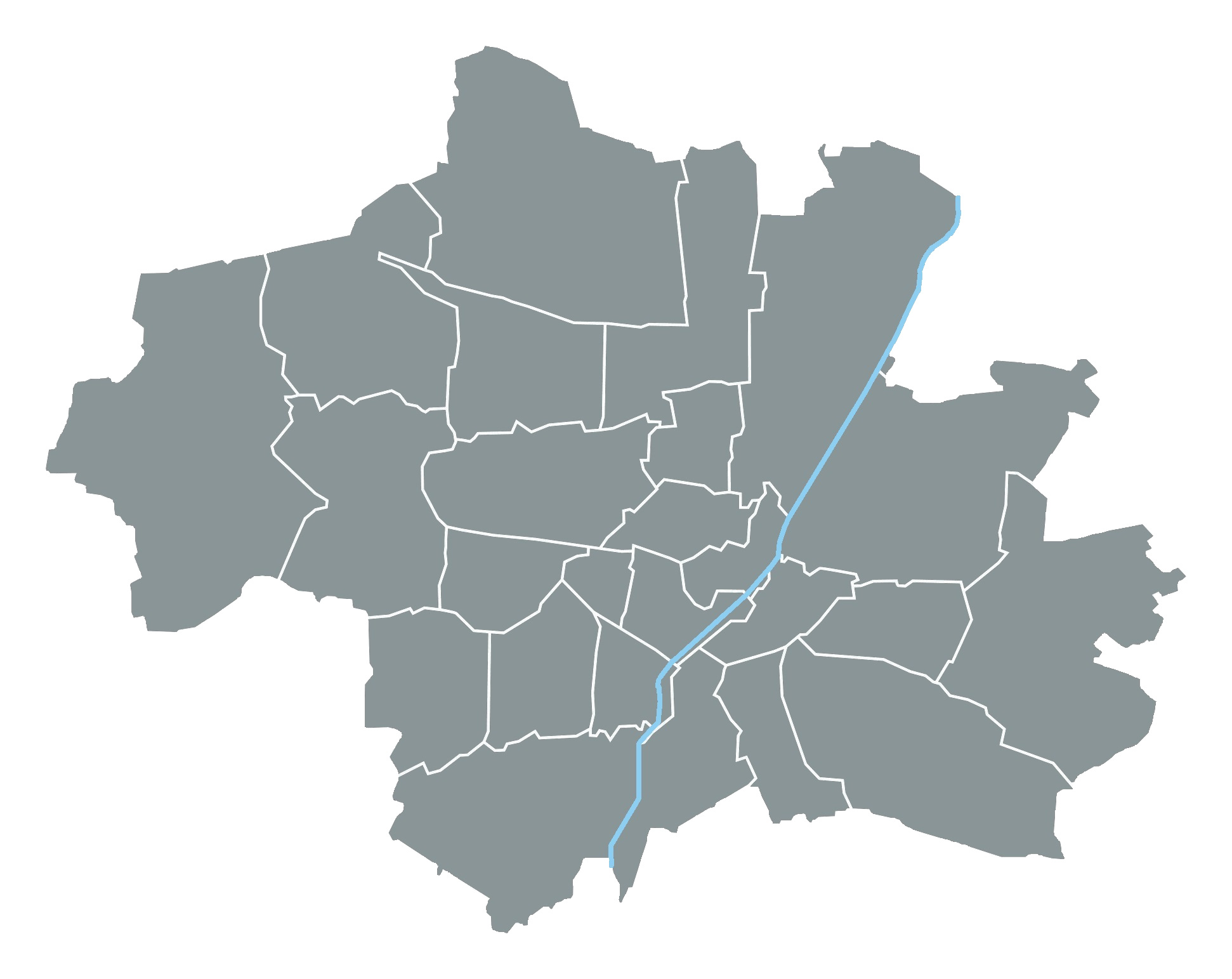
Esophageal cancer treatment
Esophageal cancer is not one of the common cancers, but has a low chance of survival after 5 years from disease onset. Therefore, it is important to develop an individually tailored treatment plan together with the treating oncologists in order to treat the tumor efficiently and, above all, in a timely manner.
How is esophageal cancer treated?
Esophageal cancer is basically divided into two types: adenocarcinoma and squamous cell carcinoma. Depending on which type it is, a suitable therapy plan is developed. The position, the depth of the tumor in the tissue and the spread of the tumor also play an important role in choosing the appropriate treatment.
Radiotherapy and chemotherapy
If the tumour cannot be safely removed completely by surgery, or if therapy is recommended before surgery, the patient is treated with chemotherapy, radiotherapy or a combination of chemotherapy and radiotherapy (radiochemotherapy).
Effective radiochemotherapy can reduce the size of the tumour to such an extent that surgery is again possible or perhaps no longer necessary. The aim of the therapy is to inhibit the growth and spread of the cancer cells as much as possible.
For tumours of the oesophagus, we perform radiation therapy in the form of brachytherapy. The irradiation is carried out with high-energy, electromagnetic rays. By introducing the radiating materials into the area affected by the cancer, on the one hand the tumor is directly combated and on the other hand neighboring organs are largely spared.
What is the treatment process in our practices?
What do you need to know before, during and after radiotherapy?
Please make sure you eat a healthy, balanced diet and drink enough water. A healthy nutritional status plays an important role in the treatment and spread of the tumor, it also helps reduce the side effects of radiation therapy.
Since the combined radiation of the esophagus can be strenuous, we advise you after the radiation if necessary. not to drive the car yourself. Please have someone drive you home unless you feel fit. The radiology team in Munich will also be happy to organize a cab for you.
Alcohol and smoking are prohibited. We do not recommend hot and spicy foods. Your attending physician will be happy to inform you.
What are the side effects of esophageal treatment?
The treatment plan is individually tailored to the patient so that the cancer treatment is as efficient as possible and the therapy as gentle as possible. Nevertheless, side effects that occur during or after radiation therapy cannot be ruled out.
Pain or discomfort when swallowing or inflammation of the mucous membranes are often observed. Nausea and weakness may also occur.
